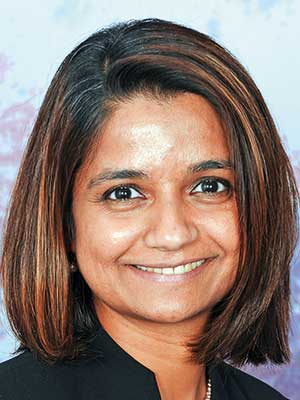Dubai: The Arab world marks Mother’s Day on March 21 to honour one of the most important facets of a woman’s life. The role of the mother is at the core of a healthy, happy society and down the ages and with each passing generation and decade, the issue of motherhood gains new dimensions even as it upholds its traditional worth.
Research continues to explore the psychological, biological, emotional and physical aspects of mothering, and one of the less focused areas is the stage of pregnancy and the bonding between the developing embryo and the mother. But new research suggests that much before the soft gurgles of the newborn and the sleepless nights for the parents, a mother can begin to actually bond with her baby while still in the uterus.
A baby can begin to hear at 18 weeks, which means they start to “absorb the sounds such as their mother’s voice, listen to music and pick up sounds in the environment around them”, Dr Gowri Ramanathan, consultant obstetrician and gynaecologist, and acting chief medical officer at King’s College Hospital London in the UAE, told Gulf News.
Pointing out that most of the important learning happens before we are born, Dr Ramanathan described the uterus as a place where a baby begins to collect “postcards” from the outside world to develop an understanding of the environment they will soon be a part of.
“The maternal postcards are sent to the baby in the forms of sound, touch and taste, which indicate to the baby the language it will speak, the people that will protect them and the foods they will eat,” she said.
Sound
Sound waves travel from the outside world through amniotic fluids, vibrate the ear drum and are turned into signals that a baby’s brain understands, said Dr Ramanathan.
“Despite the name, there is no specific type of music that helps in baby development, however, music that mimics the mother’s heart rate of 60 beats per minute help create a harmonious and soothing environment in uterus,” she said.
She further explained the vowel sounds in a mother’s speech are the loudest units, and a baby begins to pick the tone and sounds, preparing them to learn the language they will speak — and even improves their brain development to be more susceptible to picking up a second language in future.
Speech and touch
Talking to your unborn child can also have an effect on the mother-baby relationship once the baby is born. Dr Ramanathan referred to studies that have shown unborn babies prefer the sound of their mother’s voice, and will therefore respond more positively to them once born. “Connecting with your baby through touch or sound will also begin to shape and build their emotional and intuitive capabilities to sense their parents love. This has emotional and behavioural benefits that help a baby believe that the world is a safe place, and trust begins to develop,” she said.
Touching your bump is another key way to connect with your baby. Along with helping develop and mature the unborn baby’s central nervous system and brain, research has shown more self-touching by the foetus and movement in the belly when mothers were touching their bellies.
Food
Meanwhile, what a mother eats not only impacts a baby’s nourishment, but also shapes their food preferences later in life, said Dr Ramanathan.
“Exposing your baby to different foods, even spicy food, will make your baby be more willing to try new tastes when he or she starts eating,” added Dr Ramanathan.
Gulf News also talked to Dr May Ali, specialist obstetrician and gynaecologist, Al Zahra Hospital Dubai, who pointed out a foetus can begin to listen in-utero at around 18 weeks, begins to move around at 20 weeks, and can physically respond to stimuli at 24 weeks.
Describing a foetus as a “sponge,” Dr Ali explained that an unborn child absorbs the happiness their mother feels, as well as feelings of stress or unhappiness.
“There are many ways to reduce stress during pregnancy, having a conversation with the foetus is the most common and in turn has positive effects for both parties. Taking a deep breath and talking will sooth the baby and mother,” she said.
Dr Ali also suggested listening to soothing music or confiding in a partner or family during stressful times to slow down the heart rate and reduce stress for both the mother and baby.
“A majority of patients in the UAE do not realise the benefits of interacting with the foetus, unless they have specifically researched how to do so. Many don’t realise the health benefits of touching, speaking, or interacting with the foetus as a family,” said Dr Ali about her patients at the hospital.
She pointed out that often a mother’s personality or job has a greater impact on awareness and interaction with the foetus. “Mothers that have more relaxed schedules tend to spend more time reading about motherhood and taking part in antenatal classes, while busier mothers may not have time to find out how to interact with their foetus,” said Dr Ali.
She also highlighted the need for more awareness campaigns for mothers and families to start implementing positive habits. “Antenatal classes, often run by midwives, are a great place to find out more how to connect and interact with the foetus. Doctors, nurses and midwives should encourage expecting mothers to attend [these classes],” added Dr Ali.









